Peanut butter is a favorite condiment for people of all ages. Its versatility and great taste make it an ideal addition to many recipes or simply as a spread on bread. Yet, not all peanut butter is created equal. Natural peanut butter has gained popularity in recent years due to its superior taste and health benefits. Natural peanut butter is made from just two simple ingredients – peanuts and salt. Unlike conventional peanut butter, which contains added sugars, oils, and preservatives, natural peanut butter is free from these unnecessary additives. This makes it a healthier choice for those looking to cut back on processed foods and artificial ingredients. One of the main benefits of natural peanut butter is its nutritional value. Peanuts are packed with protein, healthy fats, fiber, and various essential vitamins and minerals. Protein is essential for building and repairing tissues in the body, making natural peanut butter a great option for athletes or those looking to increase their protein intake. Healthy fats, such as monounsaturated and polyunsaturated fats, are crucial for heart health and brain function. Fiber is another important component of natural peanut butter. Fiber aids in digestion, helps regulate blood sugar levels, and promotes a feeling of fullness, making it a valuable nutrient for weight management. Additionally, peanuts are a good source of vitamins and minerals, including vitamin E, magnesium, phosphorus, and zinc, all of which play vital roles in maintaining overall health. Aside from its impressive nutritional profile, natural peanut butter also offers a rich and complex flavor that is unmatched by its processed counterparts.
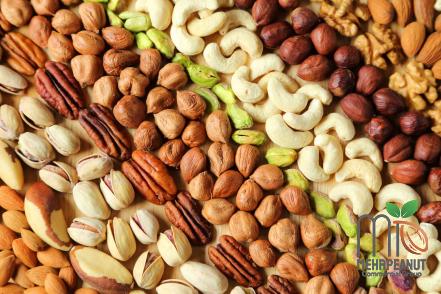
.
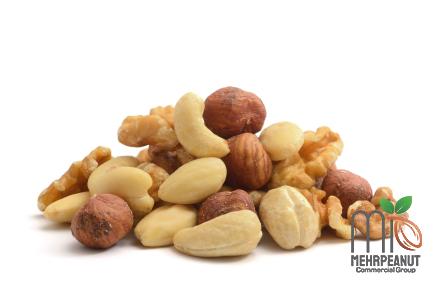 The taste of natural peanut butter is pure and nutty, with a subtle sweetness that comes from the natural oils in the peanuts. This authentic flavor is a result of the minimal processing that natural peanut butter undergoes, preserving the integrity of the peanuts and their natural oils. However, some people may find the texture of natural peanut butter to be a challenge. Natural peanut butter can have a thicker consistency compared to traditional peanut butter, as it lacks the added oils used to achieve a smoother texture. This can make it harder to spread, especially if stored in the refrigerator where the oils tend to solidify. To address this issue, simply let the natural peanut butter sit at room temperature for a few minutes before using it, or give it a good stir to mix in the natural oils. Another important consideration when choosing natural peanut butter is its sustainability and environmental impact. Natural peanut butter is often produced using methods that are more eco-friendly compared to conventional peanut butter. Many natural peanut butter brands prioritize sourcing high-quality, responsibly grown peanuts and strive to minimize waste and reduce their carbon footprint. When it comes to buying natural peanut butter, it’s essential to read the label carefully. Look for brands that use organic peanuts, as this ensures that the peanuts were grown without synthetic pesticides or fertilizers. Additionally, check for added ingredients such as sugar, hydrogenated oils, and artificial preservatives, as these can diminish the health benefits of natural peanut butter. In conclusion, natural peanut butter is a delicious and nutritious alternative to traditional peanut butter. Its simple ingredients, impressive nutritional profile, and authentic flavor make it a standout choice for those seeking a healthier option.
The taste of natural peanut butter is pure and nutty, with a subtle sweetness that comes from the natural oils in the peanuts. This authentic flavor is a result of the minimal processing that natural peanut butter undergoes, preserving the integrity of the peanuts and their natural oils. However, some people may find the texture of natural peanut butter to be a challenge. Natural peanut butter can have a thicker consistency compared to traditional peanut butter, as it lacks the added oils used to achieve a smoother texture. This can make it harder to spread, especially if stored in the refrigerator where the oils tend to solidify. To address this issue, simply let the natural peanut butter sit at room temperature for a few minutes before using it, or give it a good stir to mix in the natural oils. Another important consideration when choosing natural peanut butter is its sustainability and environmental impact. Natural peanut butter is often produced using methods that are more eco-friendly compared to conventional peanut butter. Many natural peanut butter brands prioritize sourcing high-quality, responsibly grown peanuts and strive to minimize waste and reduce their carbon footprint. When it comes to buying natural peanut butter, it’s essential to read the label carefully. Look for brands that use organic peanuts, as this ensures that the peanuts were grown without synthetic pesticides or fertilizers. Additionally, check for added ingredients such as sugar, hydrogenated oils, and artificial preservatives, as these can diminish the health benefits of natural peanut butter. In conclusion, natural peanut butter is a delicious and nutritious alternative to traditional peanut butter. Its simple ingredients, impressive nutritional profile, and authentic flavor make it a standout choice for those seeking a healthier option.
..
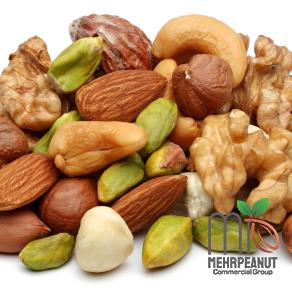 By choosing natural peanut butter, you can enjoy the taste of real peanuts, while reaping the numerous health benefits that come with this wholesome spread. So next time you’re shopping for peanut butter, consider reaching for a jar of natural peanut butter and savoring its pure and nutty goodness. By incorporating natural peanut butter into your daily diet, you can enjoy its many benefits while exploring creative ways to use this versatile ingredient. Whether you prefer to enjoy it as a spread on toast, in smoothies, as a dip for fruits and vegetables, or as an ingredient in cooking and baking, there are countless ways to incorporate natural peanut butter into your meals and snacks. One popular way to enjoy natural peanut butter is by blending it into smoothies. Adding a spoonful of natural peanut butter to your favorite smoothie recipes can create a creamy, satisfying beverage that is rich in protein and healthy fats. Try blending natural peanut butter with banana, spinach, almond milk, and a dash of cinnamon for a delicious and nutritious smoothie that will keep you feeling full and energized. Natural peanut butter can also be used as a tasty dip for fresh fruits and vegetables. Pairing apple slices, celery sticks, carrot sticks, or even whole strawberries with a dollop of natural peanut butter creates a satisfying and nutritious snack that is perfect for curbing cravings and keeping hunger at bay. The combination of sweet and savory flavors in this snack makes it a crowd-pleaser for both kids and adults alike. For those who love to bake, natural peanut butter can be a game-changer in recipes that call for traditional peanut butter.
By choosing natural peanut butter, you can enjoy the taste of real peanuts, while reaping the numerous health benefits that come with this wholesome spread. So next time you’re shopping for peanut butter, consider reaching for a jar of natural peanut butter and savoring its pure and nutty goodness. By incorporating natural peanut butter into your daily diet, you can enjoy its many benefits while exploring creative ways to use this versatile ingredient. Whether you prefer to enjoy it as a spread on toast, in smoothies, as a dip for fruits and vegetables, or as an ingredient in cooking and baking, there are countless ways to incorporate natural peanut butter into your meals and snacks. One popular way to enjoy natural peanut butter is by blending it into smoothies. Adding a spoonful of natural peanut butter to your favorite smoothie recipes can create a creamy, satisfying beverage that is rich in protein and healthy fats. Try blending natural peanut butter with banana, spinach, almond milk, and a dash of cinnamon for a delicious and nutritious smoothie that will keep you feeling full and energized. Natural peanut butter can also be used as a tasty dip for fresh fruits and vegetables. Pairing apple slices, celery sticks, carrot sticks, or even whole strawberries with a dollop of natural peanut butter creates a satisfying and nutritious snack that is perfect for curbing cravings and keeping hunger at bay. The combination of sweet and savory flavors in this snack makes it a crowd-pleaser for both kids and adults alike. For those who love to bake, natural peanut butter can be a game-changer in recipes that call for traditional peanut butter.
…
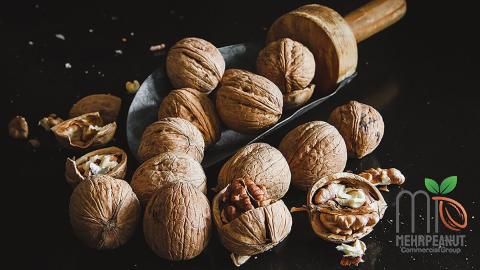 Substituting natural peanut butter for processed peanut butter in cookies, brownies, muffins, and other baked goods can enhance the flavor and texture of your creations. The natural oils in natural peanut butter add moisture and richness to baked goods, resulting in treats that are both decadent and nutrient-dense. In savory dishes, natural peanut butter can be used to create a variety of flavorful sauces and dressings. Mixing natural peanut butter with soy sauce, rice vinegar, garlic, ginger, and a touch of honey can yield a delicious peanut sauce that is perfect for drizzling over noodles, stir-fries, and salads. The creamy consistency of natural peanut butter helps to thicken the sauce and create a luscious coating that enhances the flavors of the dish. Furthermore, natural peanut butter can even be used in unconventional ways, such as in marinades, glazes, and dressings. Its rich and nutty flavor pairs well with a wide range of ingredients, from citrus and herbs to spices and chili peppers. Experimenting with natural peanut butter in your cooking can lead to exciting flavor combinations and culinary creations that will impress your family and friends. While natural peanut butter may have a slightly higher price point compared to conventional peanut butter, the benefits it offers in terms of flavor, nutrition, and sustainability make it a worthwhile investment. By choosing natural peanut butter, you are not only treating yourself to a healthier and tastier spread but also supporting ethical and environmentally conscious practices in the food industry. In conclusion, natural peanut butter is more than just a condiment – it is a wholesome and delicious ingredient that can enhance your meals and snacks in countless ways. Its purity, simplicity, and nutritional value make it a standout choice for those who value quality and flavor in their foods. So the next time you reach for a jar of peanut butter, consider choosing natural peanut butter and savoring the authentic taste and goodness that it brings to your table.
Substituting natural peanut butter for processed peanut butter in cookies, brownies, muffins, and other baked goods can enhance the flavor and texture of your creations. The natural oils in natural peanut butter add moisture and richness to baked goods, resulting in treats that are both decadent and nutrient-dense. In savory dishes, natural peanut butter can be used to create a variety of flavorful sauces and dressings. Mixing natural peanut butter with soy sauce, rice vinegar, garlic, ginger, and a touch of honey can yield a delicious peanut sauce that is perfect for drizzling over noodles, stir-fries, and salads. The creamy consistency of natural peanut butter helps to thicken the sauce and create a luscious coating that enhances the flavors of the dish. Furthermore, natural peanut butter can even be used in unconventional ways, such as in marinades, glazes, and dressings. Its rich and nutty flavor pairs well with a wide range of ingredients, from citrus and herbs to spices and chili peppers. Experimenting with natural peanut butter in your cooking can lead to exciting flavor combinations and culinary creations that will impress your family and friends. While natural peanut butter may have a slightly higher price point compared to conventional peanut butter, the benefits it offers in terms of flavor, nutrition, and sustainability make it a worthwhile investment. By choosing natural peanut butter, you are not only treating yourself to a healthier and tastier spread but also supporting ethical and environmentally conscious practices in the food industry. In conclusion, natural peanut butter is more than just a condiment – it is a wholesome and delicious ingredient that can enhance your meals and snacks in countless ways. Its purity, simplicity, and nutritional value make it a standout choice for those who value quality and flavor in their foods. So the next time you reach for a jar of peanut butter, consider choosing natural peanut butter and savoring the authentic taste and goodness that it brings to your table.
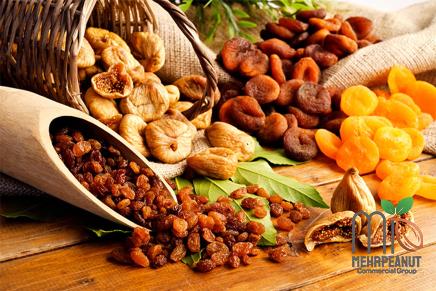
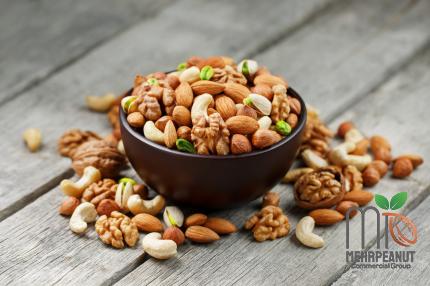
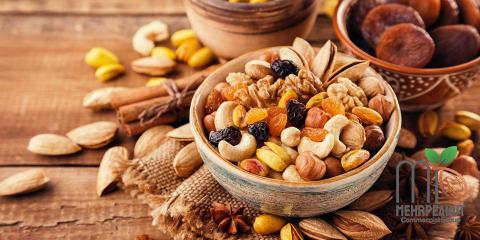
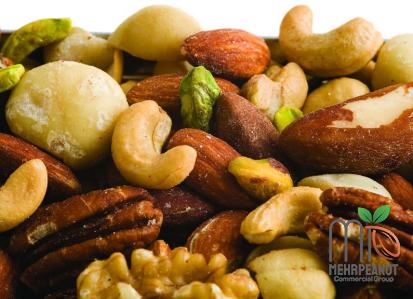
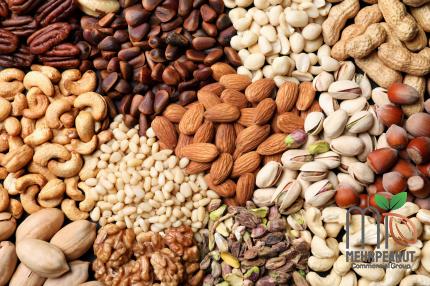
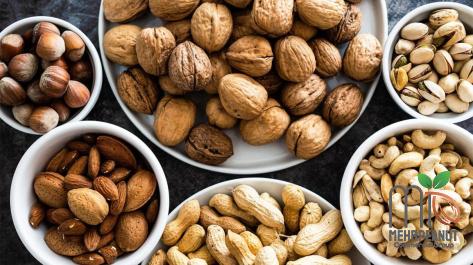
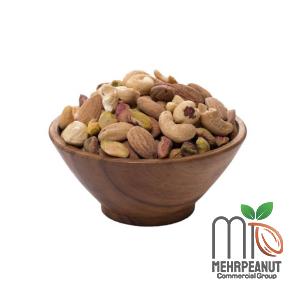
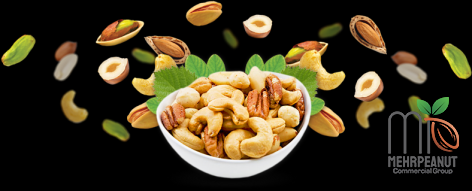
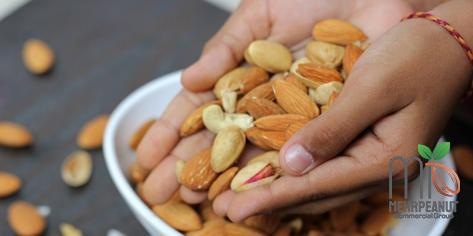
Your comment submitted.